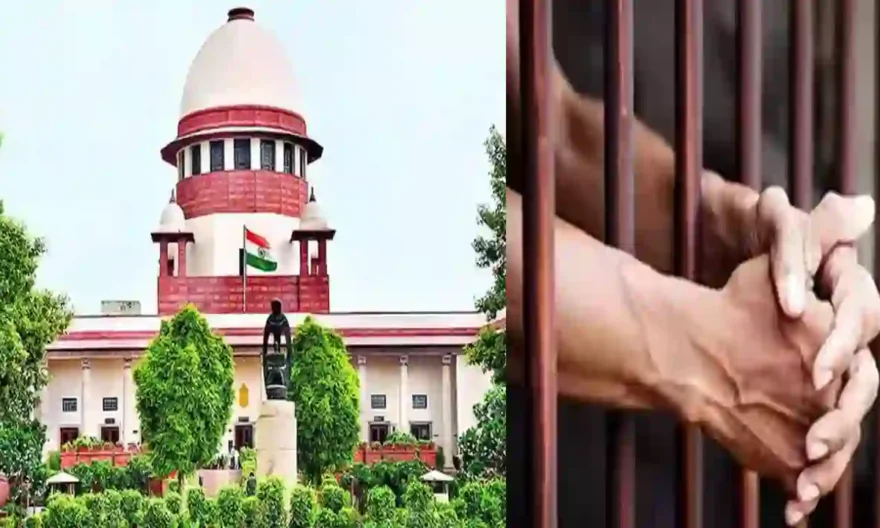
The Supreme Court on Tuesday has issued a number of guidelines in order to avoid further delays in the release of prisoners who remain imprisoned despite having been granted bail for a variety of reasons.
The guidelines were issued by a bench of Justices Sanjay Kishan Kaul and Abhay S Oka.
The Supreme Court’s guidelines are as follows:
1) The prisoner/convict must get a soft copy of the bail order via email from the jail superintendent on the same day or the following day if the court granted bail to an undertrial prisoner or convict. In the e-prisons software [or any other programme that is being utilised by the Prison Department], the Jail Superintendent would be required to enter the date of the grant of bail.
2) If the accused is not released within 7 days of being granted bail, it would be the duty of the Superintendent of Jail to notify the Secretary of DLSA, who may appoint a paralegal volunteer or a jail visiting advocate to interact with the prisoner and assist him in any way possible in his release.
3) NIC would attempt to create necessary fields in the e-prison software so that the Prison Department can enter the date of grant of bail and date of release, and if the prisoner is not released within 7 days, an automatic email would be sent to the Secretary, DLSA.
4) In order to ascertain the accused’s economic condition, the Secretary, DLSA may take assistance of Probation Officers or Para Legal Volunteers to prepare a report on the inmate’s socioeconomic conditions, which may be presented to the concerned Court with a request to relax the condition(s) of bail/surety.
5) In cases where the undertrial or convict requests that he be able to furnish bail bond or sureties once released, then in an appropriate case, the Court may consider granting temporary bail to the accused for a specified period of time so that he can furnish bail bond or sureties.
6) If the bail bonds are not furnished within one month of the date of grant of bail, the concerned Court may take up the suo moto case and consider whether the bail conditions require modification/relaxation.
7) The insistence on local surety is one of the factors that delays the release of the accused/convict. It is suggested that in such cases, courts should not impose the condition of local surety.
The court was dealing with the matter regarding the policy strategy for the grant of bail.
Advocate Gaurav Agrawal, Amicus Curiae in the case, has drawn attention to various issues concerning prisoners who remain in custody despite being granted the benefit of bail due to their inability to fulfil the conditions.
One of the main reasons why the accused are still in jail despite the grant of bail is that they may be accused in multiple cases and are apparently unwilling to provide bail bonds until he is granted bail in all cases because undertrial custody will be counted in all cases.
The court has listed the matter for further hearing on March 28, 2023.




